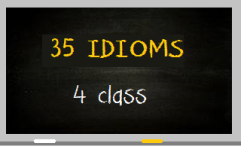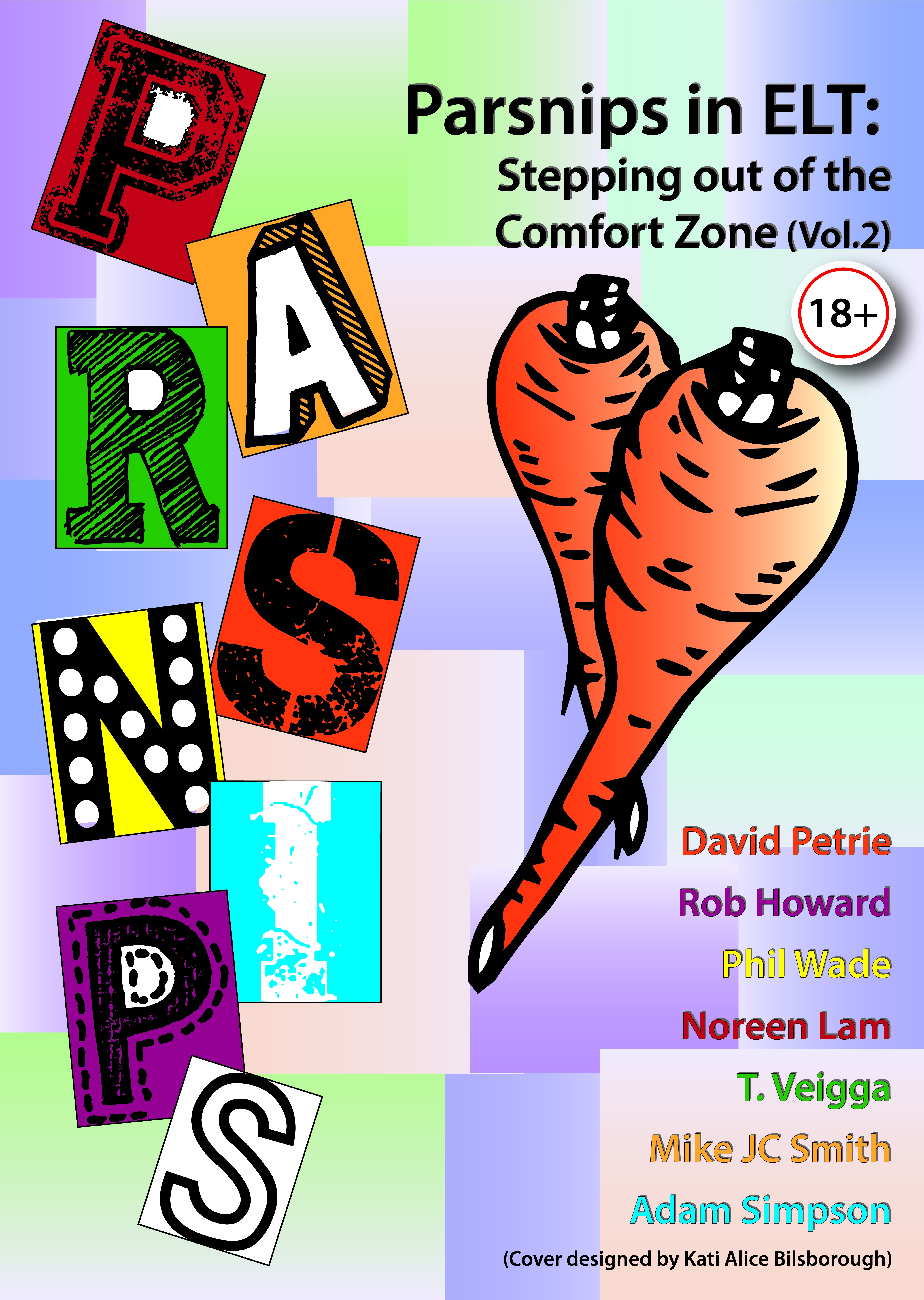While catching up on some films and shows, I noticed a few school idioms and decided to do something different this week. So here is a list of some common classroom-based idioms that you may hear, read or hopefully, even use.
A for effort
This comes from the A – F grading system meaning that at least you tried.
The presentation was terrible but you get an A for effort.
A schoolboy error
Meaning that this was a very basic mistake down at an early stage of learning.
The President mispronouncing “nuclear” was a schoolboy error.
Apple polisher
This is popular in Brazil with students although I’ve never heard it in my lifetime in the states. It comes from the old custom of bringing an apple to your teacher to win their favor and polishing it to make it shine the brightest.
I heard you compliment the teacher on her new dress. You are such an apple polisher.
As easy as ABC
Michael Jackson made it famous with his brothers singing about a simple process.
Learning the steps to speaking is as easy as ABC.
Back to basics
Means, as it sounds, going back to the beginning stages of learning and starting there.
The student, having trouble with advanced grammar, had to go back to the basics.
Be a bookworm
This is someone who loves to read and spends all their time in a book. Named after any insect or worm that bores through the pages and binding of a book.
Stephen is such a bookworm. He can always be found reading.
Cheat sheet
This, historically, was like a crib sheet (see below) used for cheating on exams. In higher grades, “Cheat sheets” or “cheatsheets” are being used legally whereas a student is allowed to prepare their own notes for the exam to use as a reference.
The student was caught using a cheat sheet and given a zero on the exam.
Cover a lot of ground
To go in depth or to visit many subjects in class. This is a figurative phrase for a vast area.
We went over so many different topics today. The teacher covered a lot of ground.
Crack a book
To “crack open” is a phrasal verb for “to open”. To crack a book is to open a book to study used both in the positive and negative forms.
I took the exam without cracking a book. I would have done better if I had cracked a book.
Cramming for a test
Waiting until the last minute and trying to “stuff” your brain with all the information at once.
He didn’t study all year so he found himself cramming the last week of the semester.
Crank out a paper
To write or produce a paper, story or project. This goes back to the days when you had to turn the crank to print something on a press.
I’ll be ready to post my weekly blog as soon as I crank out this paper.
Crib notes (Crib sheet)
These are notes that are put on small pieces of paper or other hidden areas used for cheating during exams. Formulas, dates, lists and definitions to help one pass a test.
The student was expelled from school when the teacher found her crib notes inside her pen.
Ditch class (cut class, skip class)
To not go to one’s class without permission. To cut it out of one’s schedule.
The students cut class and went to the beach instead.
Flunk out
To not pass a course due to poor grades. To fail the class.
Most people, who don’t study, flunk out of advanced level courses.
Go to the head of the class
This occurs when someone does something outstanding. Similar to “go to the front of the line” or you are at the “top of your class”.
After an amazing explanation, the student went to the head of the class.
Have it down to a science
To be able to do something well and handle all the details. Well practiced.
We have so much experience teaching grammar to students we have it down to a science.
Learn by heart
To study and practice until it is understood and firmly placed in one’s memory. Internalized.
The presenter didn’t use notes as he learned the presentation by heart.
Learn by rote
To repeat over and over as a method of memorizing words, phrases or texts, probably without understanding. Using repetition drills as a technique for memory.
Learning by rote taught him to remember the words but not the significance of the speech.
Learn the hard way
This is when you learn through experience and usually, not in a pleasant manner.
He learned the hard way that downloading music can have consequences.
Learn your lesson
Similar to learning the hard way. You learn through an unpleasant experience. This differs from the idiom to “teach a lesson” which is to get even with someone for something they did to you.
I hope you learned your lesson and won’t copy illegal music again.
Make the grade
To successfully reach the expected requirements where the grade is the general standard.
His hard work paid off allowing him to make the grade for the first time this year.
Play hooky
To not go to class or school or some other event. To be truant. Also hookey.
The entire senior class played hooky today and were found at the local beach instead of school.
Pull an all-nighter
This is to stay up all night long in order to study for a test the next day. Usually this is last minute and not planned.
He was so tired from pulling an all-nighter that he fell asleep during the test.
Put on your thinking cap
This, metaphorically, means to sit and take a moment to really think about the problem or situation before coming up with an answer.
The teacher told us the solution wasn’t obvious and we should put on our thinking caps before answering.
School of hard knocks
A method of learning through experience from work or life and not from a textbook. It refers to getting knocked around in life while learning.
The school dropout was forced to learn business from the school of hard knocks.
School of thought
This is the generally accepted standard or concept of a topic. It is how and what most people feel or think.
The new school of thought is that learning online can be just as effective as in the classroom.
Show of hands
This is an old-fashioned method of polling; asking a question and counting the responses of the polled by raising their hands.
By a show of hands, how many of you knew what this meant?
Teach an old dog new tricks
This is the ability to teach and older person, or one who has knowledge or experience a new way of doing something or thinking about something.
Successfully teaching adults a new language show that you can teach an old dog new tricks.
Tell tales out of school
This expression is about gossip. It means that you are talking behind one’s back to reveal their secrets. The origins seem to suggest this first meant telling the teacher something bad about another student after class.
I stopped being friends with her when I discovered that she betrayed my trust by telling tales out of school.
The dunce cap
This conical hat was once worn in schools by students who either didn’t study or misbehaved. The concept of being a dunce means to be dumb or a fool. Punishment included wearing the hat and sitting in the corner for an hour or more during class.
As the student knew nothing the teacher had just taught, she sat him in the corner wearing the dunce hat.
The three r’s
The three r’s refer to the basic skill foundations of education: reading, writing and arithmetic. The use of the strong R sound in each word lead to this British expression.
We send our kids to school to learn the three r’s so they can get the basic skills needed.
You’ve been schooled
Well then, to wrap up, we turn to rap. To be schooled is to be educated. Hip hop helped to make it a negative phrase by meaning you were taken to school and shown how it is done.
We beat their team 50 to 10. They’ve been schooled.
Now, you’ve been schooled!
Rob Howard is the owner of Online Language Center. He is a teacher, tutor, trainer, material designer and author for English as a foreign language. He is also a consultant and has been a frequent speaker internationally regarding online retention as well as using technology in and out of the classroom. Originally from Boston, Massachusetts in the U.S., he is currently residing in Rio de Janeiro, Brazil. You may e-mail him at rob@onlinelanguagecenter.com.













very useful for both young boys and elderly persons
LikeLike
Reblogged this on vesna english.
LikeLike
Hi Rob,
Just to let you know that we’ve shortlisted this blog post for this month’s TeachingEnglish blog award and I’ll be putting up a post about it on today’s TeachingEnglish Facebook page http://www.facebook.com/TeachingEnglish.BritishCouncil, if you’d like to check there for likes and comments.
Best,
Ann
LikeLiked by 1 person
Thanks Ann. I am honored to be considered.
LikeLike
Hi Rob!! I’ve always been a bit of a bookworm. 🙂 Thanks for sharing these school idioms. I’m gonna make sure to follow you on Twitter! -Sabrina, Fellow Online English Teacher
LikeLike
Thanks for following us Sabrina. Don’t forget to follow us here, at our site http://www.onlinelanguagecenter.com, our Facebook page and our worldwide student/teacher group.
LikeLike